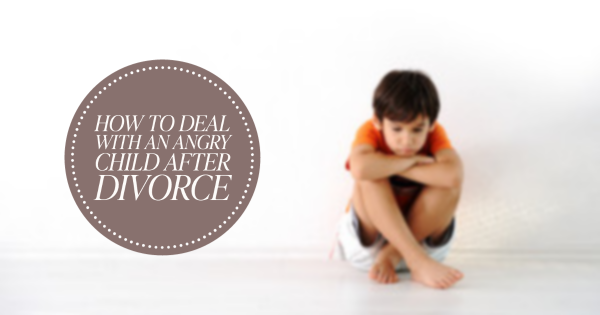How to Deal With an Angry Child After Divorce
Divorce has become a common occurrence, affecting nearly half of all marriages in the United States. According to research, marriages have a 50
% chance of lasting. Kids are often caught up in ugly divorce disputes and may exhibit behavioral changes after a marital separation. In a child’s mind, separation means one of the parents will go away. This betrayal seems subtle
but has a lasting effect on a child. Keep in mind that children don’t have the emotional maturity to understand why the separation is happening. Therefore, they are likely to express their frustration in anger.
Parents should be keen to monitor such behavioral changes and figure out how to deal with an angry child after divorce in the best ways possible. Here are some tips.
Allow Your Child to Express Their Feelings
The first thing you need to do is validate your child’s feelings. They should understand that anger is normal and healthy and that it should be expressed – but within limits. As such, you want to encourage them to talk about their feelings and avoid reprimanding them for expressing themselves. Consider using the services of a therapist if you can’t handle the raw expression of your child’s anger.
A therapist helps your child understand
why you’re divorcing your partner and helps them work through their feelings. It’s also important to maintain open communication between you and your child. The presence of both parents is equally important. If one parent is absent, schedule a meeting with the parent and your child to encourage communication. Some crucial things parents should do when finding ways on how to deal with an angry child after divorce are:
- Avoid negative talks in the presence of kids. Also, legal discussions with divorce lawyers should be kept away from children.
- Minimize disrupting a child’s daily routine.
- Both parents should be involved in the kid’s life.
Look Out for Concerning Behavior
The best way to know how to deal with an angry child after divorce is to look out for any behavioral changes. This means talking to everybody interacting with your child, including teachers, coaches, and other adults. Identifying your kid’s reactions to different environmental stressors goes a long way in finding them the right help and support.
Monitor Your Behavior, Too
Your actions and words affect your child’s perception about the current situation and their environment. Certain behaviors, like talking ill about your ex-spouse or sulking in sadness due to the situation, affect your child’s feelings and can exacerbate anger. If you find it difficult to control your behavior, find ways to relieve the negative emotions. If you can’t deal with the situation alone, seek divorce counsel from professionals well-versed with such issues.
Correct Your Child Instantly
If your child starts behaving in negative and angry ways, it’s best to address the issue instantly. Parents feel responsible for the divorce, which results in the development of certain behaviors. Doing so encourages kids to pick up on and learn these behaviors, which can have a long-term impact on a child’s emotional health and well-being.
Maintain the Same Routine
Both parents should work to maintain a normal routine as before the separation to maintain stability and reduce anxiety. While you can
’t enforce the same rules in your ex-partner’s home, try and work with them to find a working solution. Relaxing limits during drastic changes like marital separation make kids insecure and less likely to recognize your parental authority. Also, buying gifts to replace affection or letting kids act out isn’t in their best interest.
Enlist the Help of a Professional
Some behavioral problems like anger persist for a short period, but if it persists for a
long time, it’s best to seek professional help. Therapists, counselors, and other mental health professionals are trained to help know how to deal with an angry child after divorce. Sometimes kids feel more comfortable opening up about their feelings to individuals not involved in family affairs. The professional can discover if the child is dealing with something more serious than anger.
Behavioral problems in kids after divorcing your spouse are an everyday reality for many families. Knowing how to address them is critical to a child’s overall social and mental health. Monitoring your child’s emotions, communication, and knowing when to seek professional hel
p are essential elements when you notice changes in your child’s behavior.


